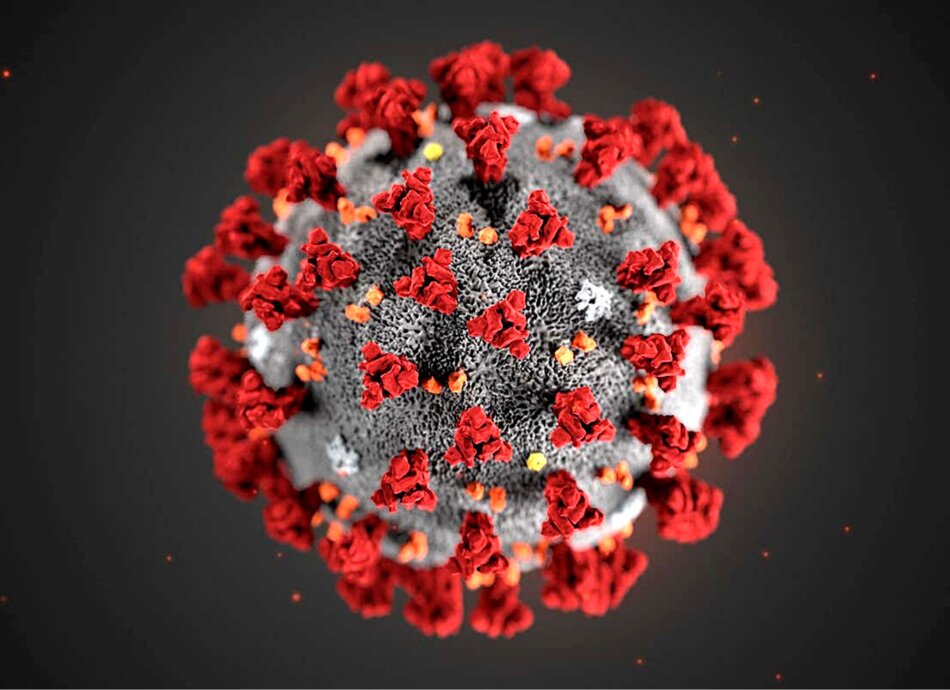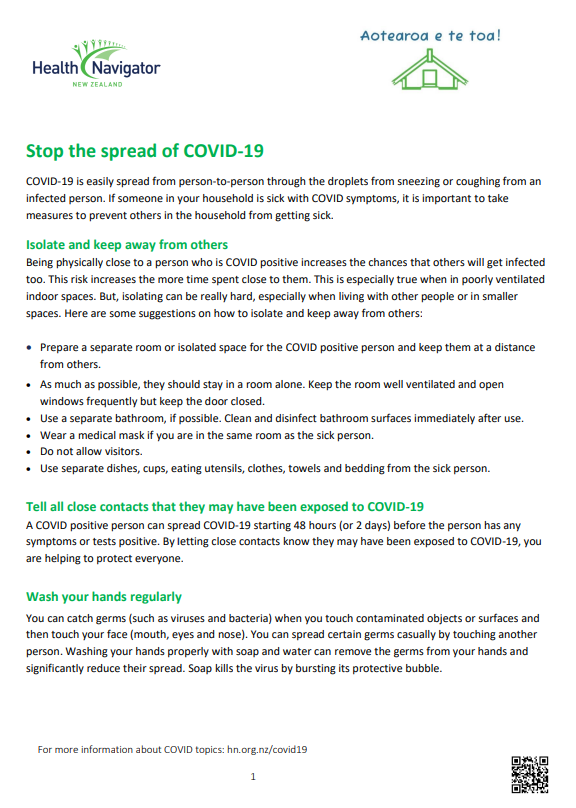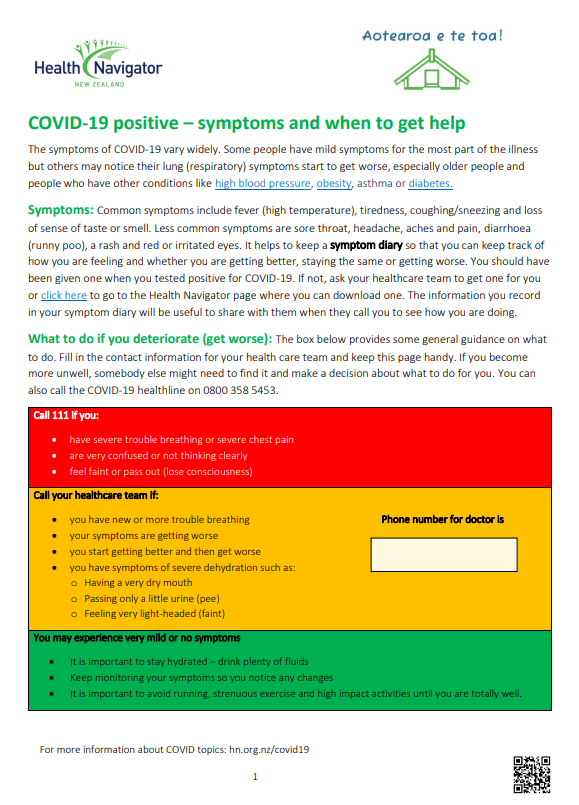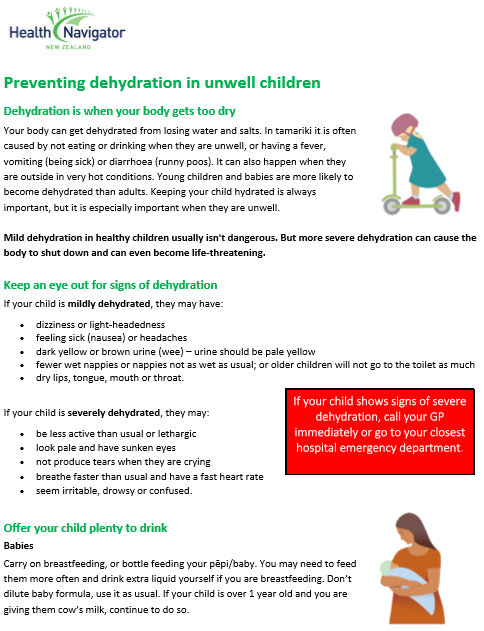There is no treatment that cures COVID-19, but there are things you can do to help your child with the symptoms it causes. The most important of these is you giving comfort, being reassuring, and distracting your child with books or playing with them.
Fever
- Undress your child so that they are just wearing a single layer (maybe a singlet and pants).
- Make sure the room is not too hot or too cold. These are the best and most comfortable ways to bring your child's temperature down.
- It's best not to give your child a bath or shower to cool them. You could use a cool face cloth.
- Your child may need extra rest or they may want to play – this is OK.
- Encourage them to drink fluids and eat healthy small meals.
Medicines
If your child is happy, and they are not unwell, you do not need to do anything more. You do not need to treat the fever with a medicine.
Paracetamol
If your child is miserable because of the fever, you can give paracetamol to make them more comfortable. You must follow the dosage instructions on the bottle. It is dangerous to give more than the recommended dose. Find out how to use paracetamol safely.
Other medicine
If your doctor gives your child ibuprofen, use it only if your child has a fever and is miserable. Don't give your child cold and flu medicines. Never give your child aspirin as this may increase the risk of Reye syndrome, which is a rare and serious illness.
Headache and other pain
If your child is in pain, as well as comforting and reassuring them, you can use medicine such as paracetamol or ibuprofen. You can buy these from a pharmacy, or ask your doctor for a prescription. If you buy it from a pharmacy, tell the pharmacist who you are getting it for to make sure that you get the right type for the age of your child. You must follow the dosage instructions on the bottle. It is dangerous to give more than the recommended dose.
Cough
Most coughs do not require treatment and get better by themselves within 3–4 weeks. Make sure your child is not exposed to any cigarette smoke.
Note the following.
Cough medicines are not useful: Cough medicines are not useful for treating cough in children.
Honey may be helpful: Honey may be helpful for a cough due to COVID-19. But, wait until your baby is at least 12 months old before giving them honey – it can make young babies sick.
Antibiotics don't help coughing caused by a viral infection: Antibiotics are not helpful for a cough caused by a viral infection. But, if your doctor finds that your child's cough is due to a bacterial infection in the throat or the chest, they may prescribe antibiotics.
Vomiting and diarrhoea
The main treatment is to keep giving your child fluids. Whichever fluids your child is having, the important thing is to:
- offer small amounts of fluid often rather than giving large amounts - aim for a quarter of a cup every 15 minutes or 1 teaspoon or 5 mls in a syringe every minute
- keep offering your child fluids even if they are vomiting.
Types of fluids
- If you are breastfeeding, continue to feed on demand - you may need to feed more frequently and drink extra fluid yourself.
- If your child is on formula, continue to give them formula feeds.
- If your child is over 1 year, you may give them cow's milk.
- Your doctor or pharmacist may prescribe electrolyte solutions such as Electral or Pedialyte if your child is dehydrated. You can buy also electrolyte solutions from your pharmacist for approximately $15 per day.
You may also give your child the following drinks as long as they are not dehydrated. You must dilute the drinks with water as they contain too much sugar (which can make the diarrhoea worse).
- Apple juice – mix 1 part juice to 1 part water
- Cordial – make up to normal drinking strength then add 1 part of water to 1 part of cordial
- Soup – add 1 part of water to 1 part of soup
- Fizzy drinks such as lemonade – add 1 part of warm water to 1 part of drink (warm water removes the bubbles).
What drinks should I avoid giving my child with vomiting and diarrhoea?
Do not give infants or children with diarrhoea:
- undiluted soft drinks, fruit juices, Lucozade, Ribena, sports drinks (such as Powerade or Gatorade) – these contain too much sugar and can make your child's diarrhoea worse
- coffee and tea – these can make your child dehydrated.
Should I keep giving my child their normal food if they have vomiting and diarrhoea?
- You can offer your child food if they are hungry, even if their diarrhoea continues.
- Continuing to feed your child can speed up recovery and can reduce the length of time your child has diarrhoea.
- Your child may refuse food at first – this is not a problem as long as they keep taking fluids.
- If possible, do not stop giving food for more than 24 hours.
- Starchy simple foods are best – try and offer foods such as bread or toast, porridge, rice, potatoes, plain biscuits, yoghurt, milk pudding.
What foods should I avoid giving my child with vomiting and diarrhoea?
Do not give your child fatty or sugary foods such as:
- takeaways
- chippies, sweets, cakes, chocolate, ice cream, cream, coconut cream.
Will my child need any medicines for vomiting and diarrhoea?
Do not give your child medicines to reduce diarrhoea as they can be harmful in children. Your doctor may occasionally prescribe a medicine for vomiting. Follow your doctor's instructions.
A virus is usually the cause of vomiting and diarrhoea. You cannot treat viral gastro with antibiotics. The body will clear out the virus on its own without treatment.
What can I do for my baby's sore bottom from diarrhoea?
Diarrhoea can cause a rash. After each bowel motion wash your child’s bottom and pat dry. Then put on a protective cream or ointment (such as zinc and castor oil cream or Vaseline).









